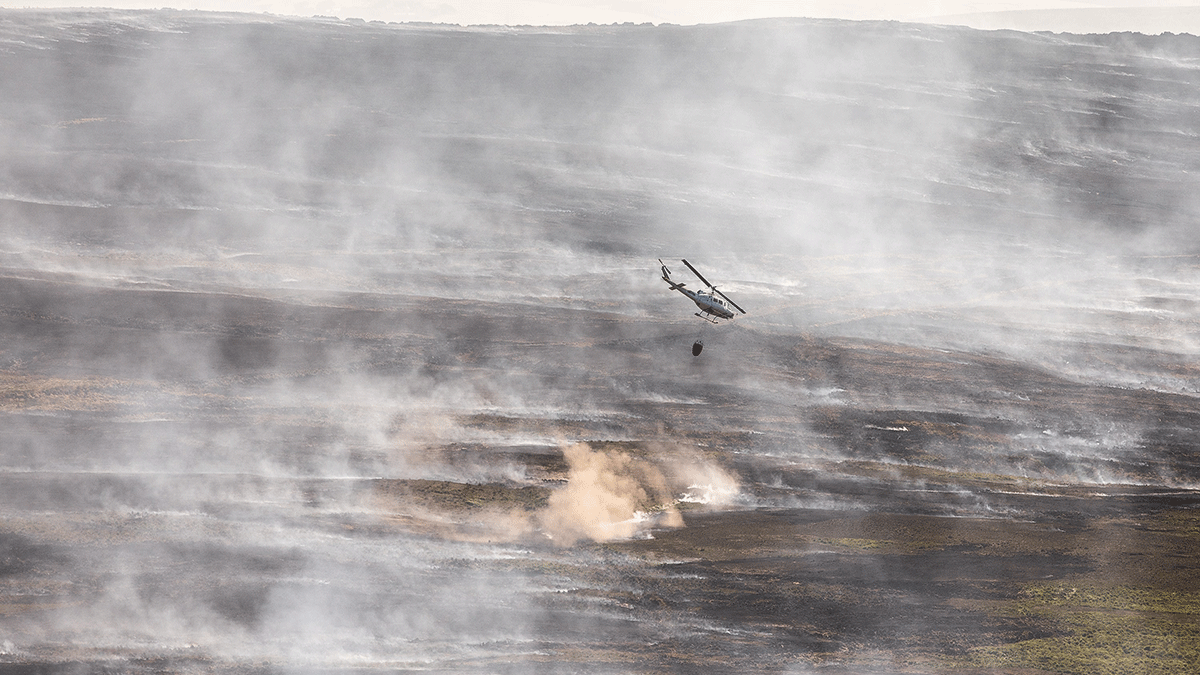An increasing threat of wildfires amid rising temperatures and Met Office warnings could have a “devastating” impact, according to the UK’s largest woodland conservation charity.
The Woodland Trust says uncontrollable wildfires put people, wildlife and natural habitats at risk. And with a Met Office amber alert issued in parts of the UK from Thursday, the Trust has urged visitors to woods, parks and green spaces to stay fire free.
With school holidays fast approaching, the conservation charity is expecting increased numbers of visitors to its 1,000-plus free, public woods across the UK, but says barbecues, campfires and discarded picnic rubbish could spark disaster.
Head of safety at the Trust Nick Hall says even a single ember from a disposable barbecue during prolonged spells of extreme hot weather ignite wildfires that rage out of control.
“I feel there is a clock ticking,” he cautioned. “It’s imperative that everyone stays alert to the dangers and doesn’t let fire get anywhere near the woods.”
Tinder-dry conditions and wind mean the potential for wildfires is greatly increased and with temperatures rising after a damp spring Hall says the Met Office’s amber warning for southern and eastern England must be taken seriously.
He added: “We could be in real bother, even if we have a reasonable amount of rain; if the temperature rises again in July and August the risk of wildfires is greatly increased. Wildfires pose serious threats to people, communities, and homes and properties. There are grave concerns if you live on the edge of towns. The threat is not restricted to wildlife and green spaces.
“We know at first hand the damage that wildfires can cause. Winter Hill in Lancashire caught fire on June 28, 2018, devastating trees and wildlife habitats at our site Smithills, and it burned until the autumn before it was put out.”
According to UN scientists, 2023 was the hottest year ever recorded globally and heatwaves are becoming more likely and more extreme because of human-induced climate change. The world has already warmed by about 1.1C since the industrial era began, and temperatures are set to keep rising unless there are big cuts to emissions.
A recent Forestry Commission report showed Fire and Rescue Services attended more than 360,000 wildfire incidents in England over the 12 years from 2009-10 to 2020-21 inclusive – an average of more than 30,000 per year. Many summer wildfires are started accidentally by lighting fires or disposable barbecues. But one stray spark or an abandoned pile of dying embers can have horrendous consequences for the countryside, destroying wildlife and causing long-lasting damage.
Fire and Rescue statistics for 2022 showed there had been almost 1,000 larger-scale wildfires in England and Wales alone – the highest number since records began in 2018.
Rob Stacey, secretary for the England and Wales Wildfire Forum and wildfire team leader and project officer for Northumberland Fire and Rescue Service, said the consequences of wildfires can be “catastrophic”.
“If fires do take hold they can spread incredibly quickly and when it’s dry there is a much greater chance of the fire getting into the ground fuels,” Stacey added.
“Running fires in grass can go faster than a firefighter can run. Slower fires can be more intense and can be just as tricky to contain; they can burn so intensely that burning embers can be carried away and start new fires.
“All wildfires can create huge amounts of damage and can pose a huge risk to people, wildlife, property, infrastructure and the environment. “But, the majority of wildfires are started by people, which means most wildfires are preventable. It is vital that we all do what we can to stop wildfires from starting in the first place. ”



















